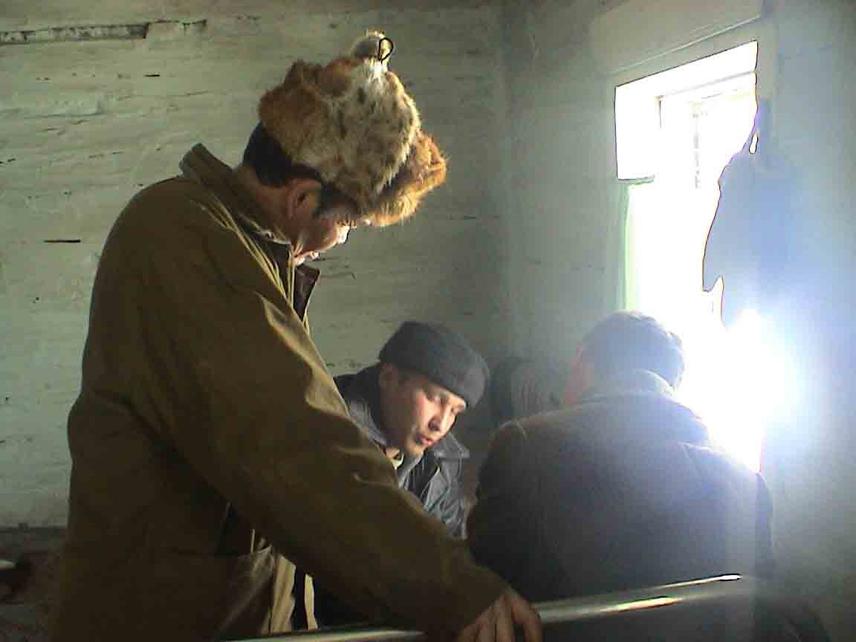Victor Kuznetsov
Other projects
27 Aug 2009
Creation of a Model Sector in the Lake Baikal World Natural Heritage Site by the Design of a System of Monitoring of the Natural and Social Environment and Involvement of Local Inhabitants in the Conservation of Especially Valuable and Pecially Protected
The aim of this project is conservation of a unique river valley, the ancestral land of an indigenous, Evenk, community, and habitat of, amongst others, rare and endangered animal species, that forms a buffer zone to the west of the Baikalo-Lensky Nature Reserve.

Local people answer questions in the social survey.
The aim of this project is conservation of a unique river valley, the ancestral land of an indigenous, Evenk, community, and habitat of, amongst others, rare and endangered animal species, that forms a buffer zone to the west of the Baikalo-Lensky Nature Reserve.
Recent changes in the economy and law have left the ancestral lands of the 'Kiringa' Evenks, still largely virgin taiga, without proper management and land rights. As a result, this relatively accessible area has become vulnerable to illegal hunting by poachers from the region's large towns. There is additional pressure of logging roads and logging advancing ever nearer to its borders. All of this threatens the integrity of the area. Species making seasonal migrations are especially threatened - some 15 species of birds and IUCN listed wild reindeer that regularly migrate from the reserve, where conditions for wintering are lacking. Moreover, a fall in the populations of hunted species would leave the Evenk without means of subsistence.
Russian law provides for special conservation status for Territories of Traditional Land Use (TTP) of indigenous Siberian peoples. So official allocation of the land to this community can protect it from logging, uncontrolled hunting and fishing, or other development incompatible with the traditional husbandry of the Evenk.
Basic surveying necessary for legal TTP status will be undertaken. This will include mapping according to habitat types, assessment of the area for habitat conditions of dominant species, two population counts of these species, and determining habitats of rare species. An economic assessment of land use will be made and the present anthropogenic load in different parts of the territory will be evaluated.
The results of this work can be used to assess impact on the animals or their habitat as the result of outside pressures. With exclusive land rights, the community will be able to claim compensation for damages from individuals and companies. The project, therefore, will not only form the basis for official registration of the TTP, but will be a powerful instrument for monitoring changes.
The extent of all community activities will be considered so that they would be both ecologically and economically sound. Apart from traditional husbandry, the possibility of the introduction of new activities that would help ease the load on game and fish resources while adding to the economic base of the community, such as eco-tourism, will be examined.